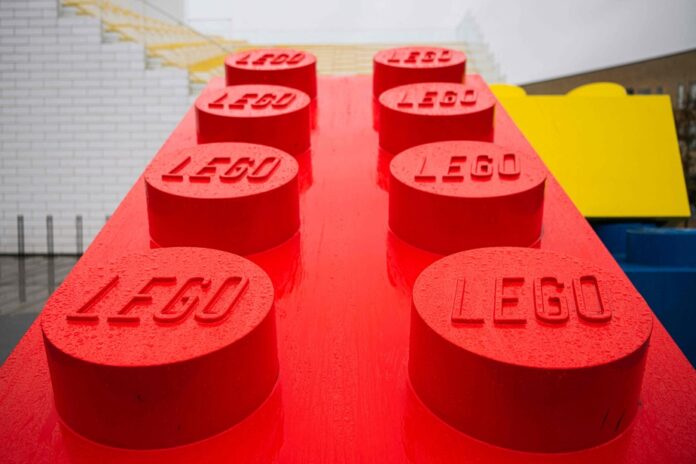(Copenhagen) The world’s number one toy, the Danish Lego, announced on Wednesday that it had gained new market share during the first half marked by varied investments, despite the decline in its net profit.
Between January and June, the group’s net profit fell 17.7%, to 5.1 billion crowns (684 million euros), compared to the first half of 2022.
Turnover remained stable, at equal exchange rate, at 27.4 billion crowns (3.75 billion euros).
These results, which contrast with the splendor of the previous three years where sales had benefited from the confinements linked to the pandemic, are in line with the expectations of the group which “like the last five years, (has) grown 10% faster than the market », Said Lego CEO Niels B. Christiansen in an interview with AFP.
Driven by the success of its franchises (Star Wars, Lego Icons) and its flagship product ranges (Lego City, Lego DREAMZzz, Lego Technic), the Scandinavian flagship was pleased to maintain high performance.
However, while sales have increased in the United States, their growth has slowed in China.
“China is coming out of the pandemic and back to more normal conditions, where people go to stores and spend…but it’s been slower than we expected,” Christiansen acknowledged.
During the semester, 89 new stores opened, including 54 in China, where Lego intends to continue its development, bringing the total number of stores worldwide to 988.
Over the full year, the plastic brick giant is expected to open 150 stores, including 85 in China.
“I strongly believe in our long-term growth opportunities in China, because there are still so many families and children who have yet to embrace the Lego brand. They live in cities where we are not yet present,” insisted the CEO.
For this avid Lego builder, “the most important challenge is always to be very creative and innovative. Every year, half of our products are new,” he pointed out.
The first six months of 2023 were marked by investments in the group’s factories, digital and sustainable development.
In April, Lego inaugurated a new factory in Virginia in the United States and began construction of another in Vietnam, an investment of 1 billion dollars (920 million euros).
In addition, its factories in Mexico, the Czech Republic, Hungary and China were expanded.
The family group, not listed on the stock exchange, has developed in the digital sector with, in particular, in April an investment of one billion dollars in Epic Games, publisher of the Fortnite video game phenomenon, to develop its presence in the metaverse.
A collaboration is to be announced later this year that will “deliver really exciting digital play experiences, but relate to physical Lego products,” Christiansen said.
Number one in toys since 2020, according to the market analysis firm Statista, ahead of the Japanese Bandai Namco and the Americans Mattel and Hasbro, Lego was founded in 1949 by the Dane Ole Kirk Christiansen.
His name is a contraction of the Danish “play well” (“Leg godt”).
After difficulties in the 2000s, the group, still in the hands of the heirs of the founder, had recovered by betting in particular on franchises and films, in particular Lego Batman, Harry Potter or Ninjago.
It has also announced that it will triple its investments from one billion crowns in 2022 to 3 in 2025 to reduce its emissions and develop recycling and biosourced materials.
For the full year, according to its CEO, Lego is expected to achieve single-digit growth.
In 2022, turnover jumped 17% to 64.6 billion crowns (8.6 billion euros).















